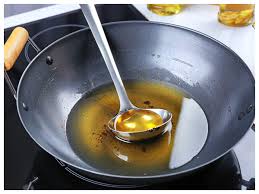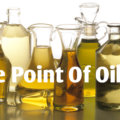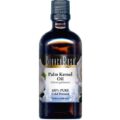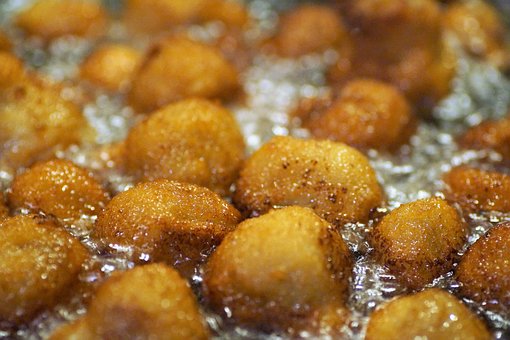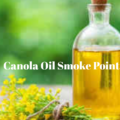The landscape of cooking oils in Nigeria really expanded over the past several years, bringing to light new types of unique oils that may seem intimidating at first. But different oils have different characteristics and specific purposes when it comes to cooking. Nigeria continues to face challenges in terms of providing healthy, hygienic and quality food options to the masses. Research shows a prevalent use of cooking oil, 70% of which is unbranded. Unbranded Oil is carried in several dirty containers & kegs and sold in small polythene bags and re-used bottles. This provides many avenues for adulteration with deadly chemicals and chances of contamination with germs and insects.
Some oils are best for frying, whereas some are ideal for simply drizzling or using as garnish. Before we get into the different types of cooking oils, there are a few basic tips you’ll want to know regarding oil properties and storage practices.
When it comes to storage, you never want to store oil near or over the stove. Certain oils can become rancid if exposed to light, heat, and oxygen. Instead, store oil in a cool, dark place. For best quality and flavor from your oil, aim to use it within one year of purchase (some oils may need to be used even sooner). While wine gets better with age, oil does not and the quality and flavor will weaken as the oil ages.
Another important thing to note is the oil’s smoke point, which is listed out for each oil mentioned below. An oil smoke point, also known as the burning point of oil, is the temperature at which the oil begins to smoke up and lose its integrity. If an oil starts to smoke, it can release chemicals that give your food a bitter flavor and also produce free radicals that can be harmful to your health.
Recently, a 42 years old woman was admitted at the Lagos University Teaching Hospital (LUTH) groaning in severe pains. She was diagnosed of heart attack as a result of blockage of one of her blood vessels supplying the heart. The cardiologist attending to her said the woman developed plaques as a result of accumulated cholesterol in her blood vessels.
Best Fats and Oils for Low-Cholesterol Cooking
To curb cholesterol levels, it’s important to limit fat intake without going to extremes. It’s also important to choose the right fats and oils for preparing meals and snacks.
The fat found in butter, margarine, soft spreads, and vegetable oils is considered either good (unsaturated) or bad (saturated and trans fat).
Unsaturated fats — monounsaturated and polyunsaturated — are deemed beneficial because they prevent clogged arteries that block the flow of blood to the heart and brain. Unsaturated fats should be the main types used in food preparation.
Monounsaturated fat is the primary type found in olive, canola, and sesame oils, as well as in avocados and avocado oil, and in nuts and their oils. Polyunsaturated fat is prevalent in corn, cottonseed, and safflower oils; sunflower seeds and sunflower oil; flaxseed and flaxseed oil; soybeans and soybean oil; tub margarine and soft spreads; and seafood.
Saturated fat increases the risk of blocked blood vessels. It’s prevalent in fatty meats, and in full-fat dairy foods including butter, cheese, ice cream, and whole milk, all of which also contain significant dietary cholesterol. Coconut oil, palm, palm kernel oil, and cocoa butter supply large amounts of saturated fat, too, but are cholesterol-free.
Your body makes all the saturated fat and cholesterol it requires, so you don’t need to eat any. You also don’t need any trans fat, which, like saturated fat, increases the risk of heart disease and stroke. Trans fat is found in stick margarine, some tub margarine, and in shortening, as well as in some processed foods such as cookies, crackers, and pastry. Cooking oils do not contain trans fat.
Best Cooking Oils in Nigeria
The best cooking oil in Nigeria are the healthiest which are “cholesterol free” they include:
- Grand Cooking oil
Grand Cooking oil is produced from specially selected Soya Bean Seed by UAC of Nigeria PLC (UAC). The oil is odorless, clear, Congeal and does not foam nor fume and heart friendly. The product is endorsed by the Nigerian Heart Foundation (NHF) and the Nutrition Society of Nigeria (NSN). In addition, it is edible, nourishing, cholesterol free and Halal.
- Mamador Cooking Oil
Mamador is a healthy cooking oil for heart health and tasty meals. It’s cholesterol free and also contains Omega 6 & 9 proven to keep heart healthy. It is triple filtered to deliver superior golden colour and ensure removal of all impurities thus 100% Pure. Mamador Pure Vegetable Oil is a healthy choice for your daily cooking as it also contains Vitamins A and E, which provide major health benefits to the whole family. Other benefits of Mamador Pure Vegetable Oil include its stability under the Nigerian climate. It does not oxidize in sunlight. It is suitable for all types of cooking, frying and baking and brings out the expected natural taste on any meals prepared with it.
Mamador Cooking Oil is produced and packaged locally (in Nigeria) in a world class refinery- ISO, NAFDAC and CODEX-certified manufacturing environment which guarantees 100% product quality and freshness.
- Power oil
Power oil is good for cooking. It has low cholesterol and can be eaten by all age. Power oil is made from vegetable and is very pure. Power oil is healthy to eat. It is also the healthy choice with “Zero Cholesterol”, “Zero Trans-fat” which was first of its kind to be introduced into the Nigerian Market.
- Sunola Soya
Sunola Soya vegetable oil is 100% pure, highly nutritious, made from soya, completely refined and enriched with vitamin A. It is cholesterol free, good for cooking and can be eaten by all age grades.
- Palm oil
Palm oil is used for preventing vitamin A deficiency, cancer, brain disease, aging; and treating malaria, high blood pressure, high cholesterol, and cyanide poisoning. Palm oil is used for weight loss and increasing the body’s metabolism.
As food, palm oil is used for frying. It’s less saturated than butter and contains no trans fat. But just because it’s not as bad as trans fat doesn’t make it a health food. According to Harvard nutrition experts, palm oil is clearly better than high–trans fat shortenings and probably a better choice than butter.


